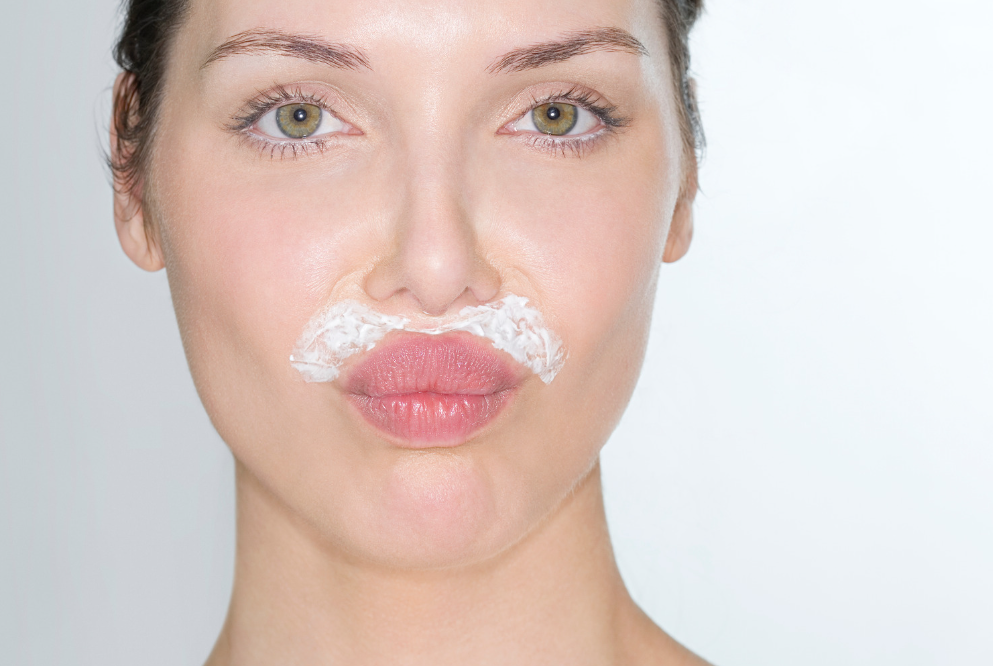
Do hair growth products cause facial hair in women?
Hair loss is becoming increasingly in women, particularly when we reach middle age and beyond. There are a number of factors that cause hair loss in women, with some of the most common ones being; androgenic alopecia (female pattern baldness), alopecia areata, menopausal hair loss, postpartum hair loss, stress-related hair loss, and seasonal hair loss.
When we start losing hair, the first thing many women do to counter this is to seek hair loss treatments. There are many hair loss treatments on the market, from medications like minoxidil, to more natural solutions like KGF serum, so it can be difficult to know what treatment works best.
Some hair loss treatments (usually the medications) can cause negative side-effects – some of which can be severe. This can be concerning for many women, because as much as they want to combat hair thinning, at the same time, they do not want to compromise on their health and wellbeing.
What are common negative side-effects from hair loss treatments?
There is a far greater risk of experiencing negative side-effects when using medical treatments. Medical treatments like minoxidil (Regaine/Rogaine) and baricitinib (branded as Olumiant), can be effective in treating thinning hair, but they can also give out some undesirable side-effects.
Common negative side-effects from medical treatments include; headaches, dizziness, fatigue, weight gain, skin rash, sore joints, swelling of the ankles, depression, and facial hair growth.
Facial hair growth in women using hair loss treatments
One of the biggest fears among women using hair growth treatments is the side-effect of facial hair growth. Facial hair growth can occur in women using medical treatments such as minoxidil, but this usually happens when using the 5% solution, which is recommended for men.
The 2% minoxidil solution is safer to use for women, and negative side-effects are reduced considerably with this amount. It is not recommended that women use the 5% minoxidil solution.
Do hair growth supplements cause facial hair growth in women?
Multivitamin hair supplements like Viviscal and HR23+® are among the most common non-medical hair loss treatments for men and women. These types of supplements are safe, free from any drugs and harmful additives, and offer users a safe alternative to harsh prescription medications.
What’s more, they do not stimulate facial hair growth in women. HR23+® hair supplement is the leading non-medical solution for hair loss, and it is free from negative side-effects.
Do hair growth serums cause facial hair growth in women?
Hair growth serums are particularly popular with women. Some of the popular hair growth serums on the market include Grow Gorgeous, LA Science, and KGF Serum. Results tend to vary with each serum, but on the whole, they are seen as relatively effective treatments for hair loss.
Potent topical solutions, like KGF serum, do not give any major negative side-effects. They are safe, non-medical formulas that work at the root cause of hair loss. Non-medical hair growth serums do not stimulate facial hair growth on men or women.
Conclusion
Hair loss treatments, in general, do not cause facial hair growth in women. Medications such as minoxidil can stimulate slight facial hair growth (usually on the sides of the face, and upper lip region) but this is rare, and does not usually occur when using the lower 2% solution.
Non-medical hair loss treatments, like HR23+® and KGF Serum, do not come with any major negative side-effects, including the stimulation of facial hair growth in women. These types of treatments are safe to use, and can be highly effective in reducing hair fall, and promoting hair growth.
As with any treatments, results will always vary from person to person, and the same goes for negative side-effects. Each person will react differently to varying treatments, so it’s really a case of sourcing a treatment plan that works best for you, individually.
Facial hair growth can only occur if the person already has hair follicles on the face. Treatments like minoxidil do not “create” hair follicles, they simply stimulate the existing hair follicles to spring into life and sprout hair.


Leave a Reply